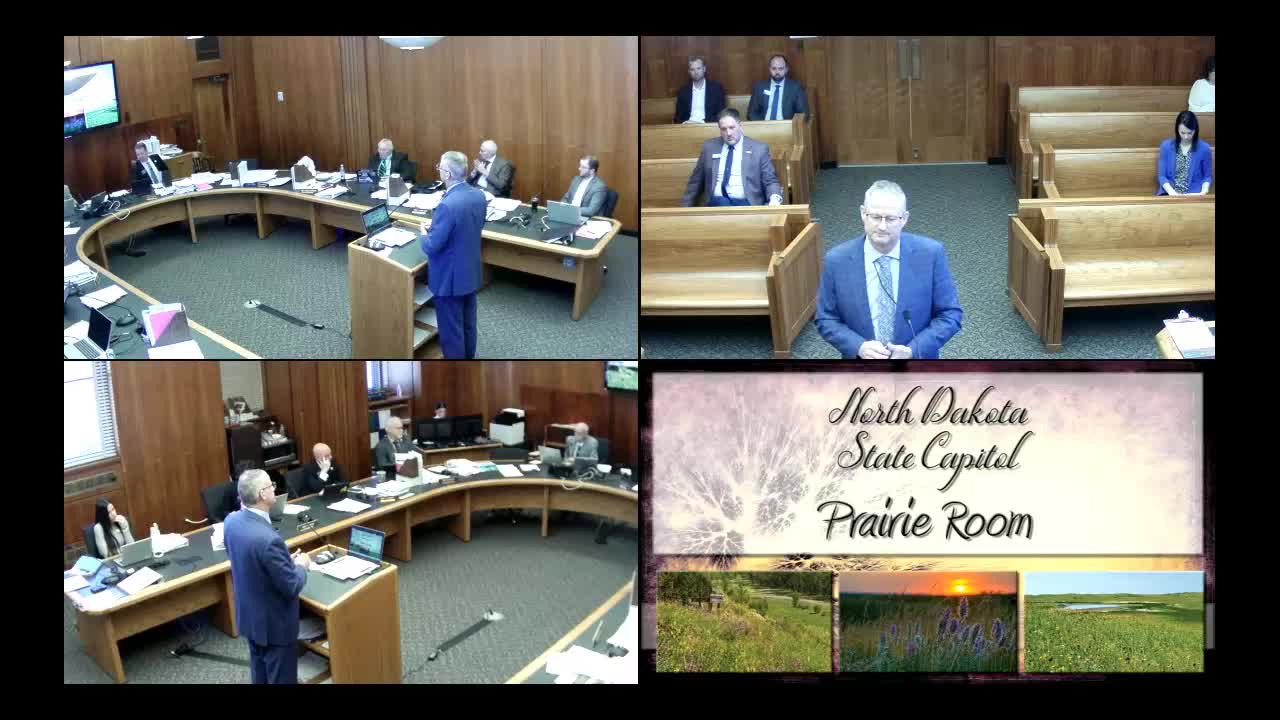Governor requests $10M funding for state development projects
March 25, 2025 | Appropriations - Education and Environment Division, House of Representatives, Legislative, North Dakota
This article was created by AI summarizing key points discussed. AI makes mistakes, so for full details and context, please refer to the video of the full meeting. Please report any errors so we can fix them. Report an error »

In a recent meeting of the House Appropriations - Education and Environment Division, North Dakota legislators discussed critical funding issues that could significantly impact the state's educational and environmental initiatives. The meeting, held on March 25, 2025, highlighted the ongoing debate over the appropriate level of funding for various programs, particularly in light of the governor's request for $10 million.
One of the key topics was the stability of funding for applications throughout the biennium. Legislators expressed that maintaining the proposed $10 million would likely ensure that the number of applications remains consistent. This funding is crucial for supporting various projects and initiatives, particularly as the state anticipates an increase in available funds. The discussions also touched on the average award size, which currently stands at approximately $630,000. Legislators noted that while the awards are generally capped at around $1 million, there are instances where larger amounts are necessary, depending on the risk profile and development stage of the companies involved.
The committee emphasized the importance of a structured funding spectrum, which includes various programs designed to support businesses at different stages of development. This spectrum ranges from initial entrepreneurial loan guarantees to more substantial development funds. Such a framework is essential for fostering growth and innovation within the state, as it allows for tailored financial support based on specific needs.
Additionally, the meeting featured input from Greg Tavine, co-founder and chairman of Grand Farm, who presented amendments related to agricultural innovation. His participation underscores the collaborative efforts between the government and private sector to enhance North Dakota's agricultural landscape.
As the committee continues to deliberate on these funding issues, the outcomes will play a pivotal role in shaping the future of educational and environmental programs in North Dakota. The next steps will involve further discussions and potential adjustments to the proposed funding levels, reflecting the committee's commitment to effectively managing state resources while supporting growth and development.
One of the key topics was the stability of funding for applications throughout the biennium. Legislators expressed that maintaining the proposed $10 million would likely ensure that the number of applications remains consistent. This funding is crucial for supporting various projects and initiatives, particularly as the state anticipates an increase in available funds. The discussions also touched on the average award size, which currently stands at approximately $630,000. Legislators noted that while the awards are generally capped at around $1 million, there are instances where larger amounts are necessary, depending on the risk profile and development stage of the companies involved.
The committee emphasized the importance of a structured funding spectrum, which includes various programs designed to support businesses at different stages of development. This spectrum ranges from initial entrepreneurial loan guarantees to more substantial development funds. Such a framework is essential for fostering growth and innovation within the state, as it allows for tailored financial support based on specific needs.
Additionally, the meeting featured input from Greg Tavine, co-founder and chairman of Grand Farm, who presented amendments related to agricultural innovation. His participation underscores the collaborative efforts between the government and private sector to enhance North Dakota's agricultural landscape.
As the committee continues to deliberate on these funding issues, the outcomes will play a pivotal role in shaping the future of educational and environmental programs in North Dakota. The next steps will involve further discussions and potential adjustments to the proposed funding levels, reflecting the committee's commitment to effectively managing state resources while supporting growth and development.
View full meeting
This article is based on a recent meeting—watch the full video and explore the complete transcript for deeper insights into the discussion.
View full meeting
